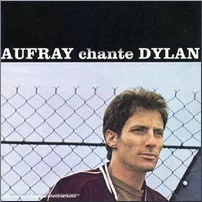Time: 37:28
File: MP3 @ 320K/s
Released: 2013
Styles: Fado, Folk, World
Label: Universal Music
Art: Front
01. Por Morrer Uma Andorinha (With Camane) (4:05)
02. Julia Florista (With Mariza) (3:21)
03. Lisboa Oxala (With Carminho) (4:15)
04. Novo Fado Alegre (With Ana Moura) (2:49)
05. Pontas Soltas (With Ricardo Ribeiro) (3:58)
06. O Que Sobrou De Um Queixume (With Raquel Tavares) (3:13)
07. Calçada A Portuguesa (With Cristina Branco) (2:38)
08. Fado Do 112 (With Marco Rodrigues) (3:12)
09. Vou Contigo Coraçao (With Aldina Duarte) (3:52)
10. Nasceu Assim, Cresceu Assim (With Mafalda Arnauth) (2:50)
11. Loucura (With Lucilia Do Carmo) (3:09)
Carlos Carmo is a Portuguese fado singer whose career spans several decades, beginning in the early '60s and peaking during the '70s. Born Carlos Alberto Ascenção de Almeida on December 21, 1939, in Lisbon, Portugal, he is the son of fado legend Lucilia do Carmo. He made his recording debut in 1963 with a pair of four-song releases on Alvorada: Mário Simões e Seu Quarteto Apresentando Carlos do Carmo and Carlos do Carmo e Orquestra de Joaquim Luiz Gomes. A couple years later in 1965 he made some recordings with Decca: the four-song releases Fado Razão da Minha Vida and Fados do Meu Coração. Carmo's popularity grew with each passing year, and by 1969 he was releasing full-length albums on Alvorada, Decca, and Philips. He peaked in popularity during the '70s, when he released at least one, if not multiple, album(s) each year. Though Carmo's productivity steadily slowed over the years, he remained highly popular and toured internationally as a concert performer. In later years, his album releases often coincided with career milestones: for example, Ao Vivo no CCB: Os Sucessos de 35 Anos de Carreira (1999), Do Tempo do Vinil: 40 Anos de Carreira (2003), Ao Vivo no Coliseu dos Recreios de Lisboa: 40 Anos de Carreira (2004), and Fado Maestro: 45 Anos de Carreira (2008), the latter of which was especially successful, reaching the Top Five of the Portuguese album charts. Studio album such as À Noite (2007), on the other hand, were few and far between, though generally well received.
Fado E Amor




















